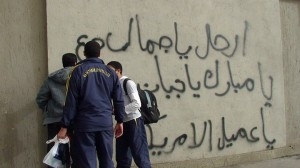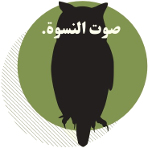
From the heaviness of an uneventful cold day in the city of Toronto I sit, shifting from my bed to my desk, watching/reading about the revolutions in both Egypt and Tunisia. I n those moments, I cannot but feel the heat of people’s enthusiasm for an honorable life, sometimes through the threat of death and others through death itself. The hundreds of martyrs from Egypt and Tunisia, and the millions marching in the streets of both countries, have definitely taught the Arab world and the rest of the world a lesson or few on how ‘freedom’ is fought for and not granted or bought, as many liberal democracies and ideologies believe. Yet, there is something unsettling in reading about the popular intifa da in Egypt or Tunisia in the Western (precisely English North-American and European) media. Not only because of discourse and terminology used to describe the events, like the use of the term “chaos on the streets” or “violent demonstrations”, but also through remote and distancing coverage of people’s experiences and lives in the streets. The majority of these close and ‘down to earth’ camera angles and interviews we are actually getting from the people in Egypt, who are using whatever medium they have to deliver those ‘human’ stories, reproducing different footage from the bird eye view, militarized, images of the ‘revolution’. Similarly, we have other media rhetoric portraying Egyptians as being ‘peaceful’ or ‘civilized’ in cleaning their streets and taking their present and their future into their own hands. Here, Egyptians are provided, in unsettled socio-political times, with the test of the civilizations scale. While, on ordinary uneventful days, we are bombarded through Western media with racist and problematic coverage of gays or women in Egypt, or with random romanticizing touristic ads portraying all Egyptians (and Tunisians for this matter), are ever-smiling, happy and grateful to be in the service of White or Western tourists. An unsurprising aspect of this mainstream media coverage is the silencing of women in both Tunisia and Egypt, with exception of a few of marginalized articles. And when we do hear about Tunisian and Egyptian woman, they are presented in such a patronizing way, as if it is very unusual for the women in their countries to talk, to express themselves and engage in political conversations during revolutionary times, let alone, again, on ordinary days. Women’s voices, when heard, are brought to the media to be heard only in relation to (perhaps in conversation with) an imaginary white-middle-class women (and men) in Western countries; always in relation to and distance from how “civilized” they are, like “us”, and how “victimized” they are, unlike “us”. It also becomes unsurprising that western media gets excited when they see a woman—or twenty, among the crowds of demonstrators. Especially when these women embody all that is not hegemonically attributed to be western or white ‘culture’; for example, when women are wearing a hijab while chanting, at the same time, for sociopolitical changes. As if this image holds an inherent paradox we are supposed to figure out quickly and then reread as subversive, instead of ordinary; since there is no inherent contradiction in wearing hijab and seeking to throw out a dictator, or seeking justice. The marginalization of women in Egypt and Tunisia in media coverage does not simply happen when there are no visible “revolutions”, or even worse, when ‘revolutions’ are over. We can only learn from the Palestinian case. Women in Palestine powerfully led and were central part of the popular uprising, the first intifada, then they were marginalized in the second one. Not in Palestine, but in the media and academic discourses. Now women’s role in the political life both in the small scale struggles against the wall, for example, or in their involvement in a larger political movements in Palestine, is rarely heard of. What is impressive in these promising courageous times is the persistence of so many people in Egypt and in Tunisia in reclaiming their voices back from their own oppressive rulers, as well as from a historically racist and misleading western (and sometimes Arab) media and academic discourse. And given this long history of racism and misrepresentation, no doubt it is a mystery to some why the people in this part of the world are now “surprising us”.
Publisher:
Section:
Category:






